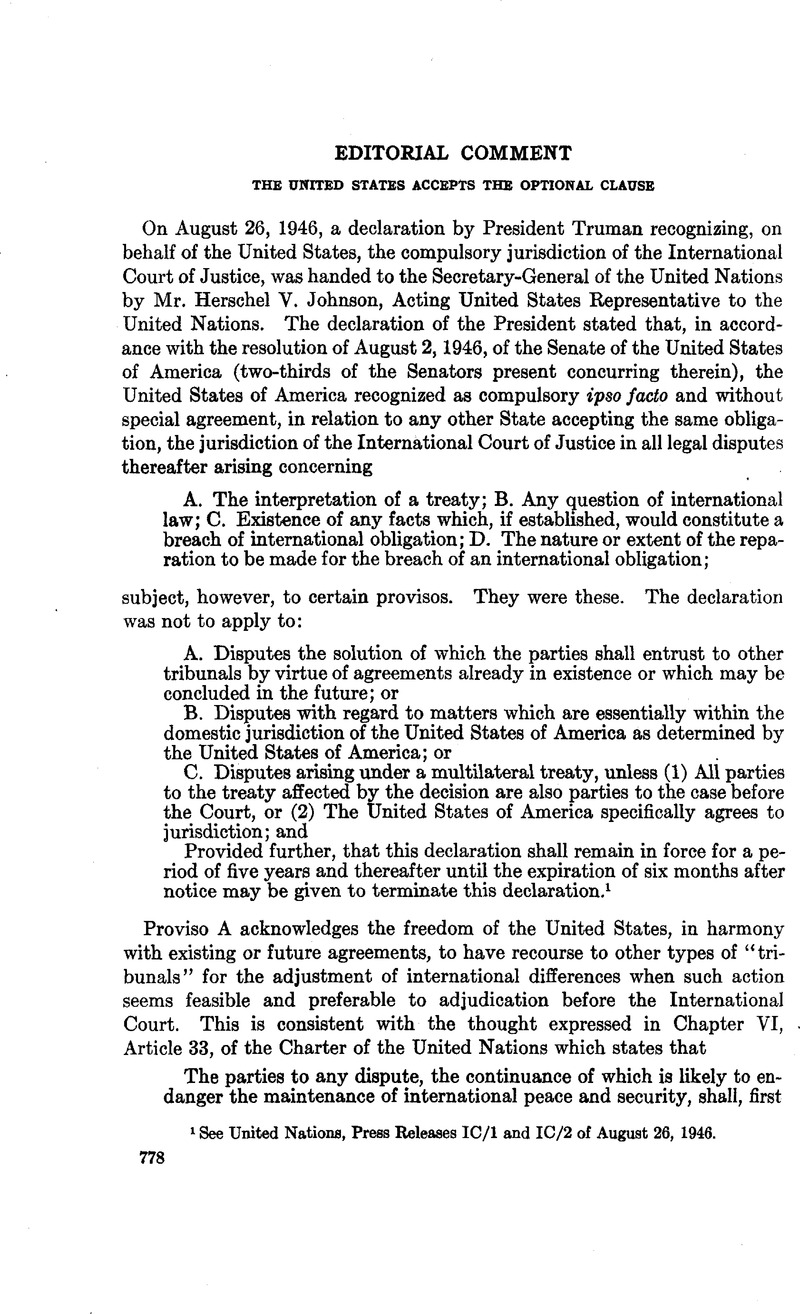No CrossRef data available.
Published online by Cambridge University Press: 20 April 2017

1 See united Nations, Press Releases IC/1 and IC/2 of August 26, 1946.
2 The writer had observed elsewhere:
There is a broad zone within which the activities of the individual State, even in respect to certain matters affecting the interests of others, have in practice been left so completely to the local control as to inspire the statement that they are not, in principle, regulated by international law. There is suggested a distinction between matters which by virtue of the law of nations a State enjoys a broad right to control, and those respecting which it enjoys unmolested freedom because they fall within a domain where international law is not deemed to be applicable. Such a distinction may be useful in portraying or identifying special activities or situations wherein a State has long been permitted to be the sole judge of the propriety of its conduct, and where the absence of outside interference has revealed the remoteness of any general international interest. It fails, however, to offer a satisfactory explanation of the latitude accorded or enjoyed. If a State is unhampered in its activities that affect the interests of any other, it is due to the circumstance that the practice of nations has not established that the welfare of the international society is adversely affected thereby. Hence that society has not been incited or aroused to endeavor to impose restraints; and by its law none are imposed. The Covenant of the League of Nations takes exact cognizance of the situation in its reference to disputes “which arise out of a matter which by international law is solely within the domestic jurisdiction” of a party thereto. It is that law which as a product of the acquiescence of States permite the particular activity of the individual State to be deemed a domestic one. (International Law Chiefly as Interpreted and Applied by the United States, 1945 (2 ed.), Vol. I, p. 7.)
3 U. S. Treaty, Vol. IV, 4180. “Disputes legal in their nature may arise between two States with regard to matters falling exclusively within the domestic jurisdiction of one of them. No State can agree to the submission to an international tribunal of matters falling exclusively within the range of its national sovereignty. Similarly, there are some political questions even of a justiciable nature as to which a country feels that for the reasons indicated in paragraph 4 the stage has not yet been reached when it can agree unreservedly in advance to submit them to an arbitration tribunal.” Observations of His Majesty’s Government in Great Britain on the Programme of Work of the Committee on Arbitration and Security of the Preparatory Commission for the Disarmament Conference, League of Nations Publications, Disarmament, 1928. IX. 3, p. 51.
4 See discussion in the Senate, August 2,1946, Congressional Record, Vol. 92, pages 10828-10850.
5 United Nations Press Release IC/2, August 26, 1946.